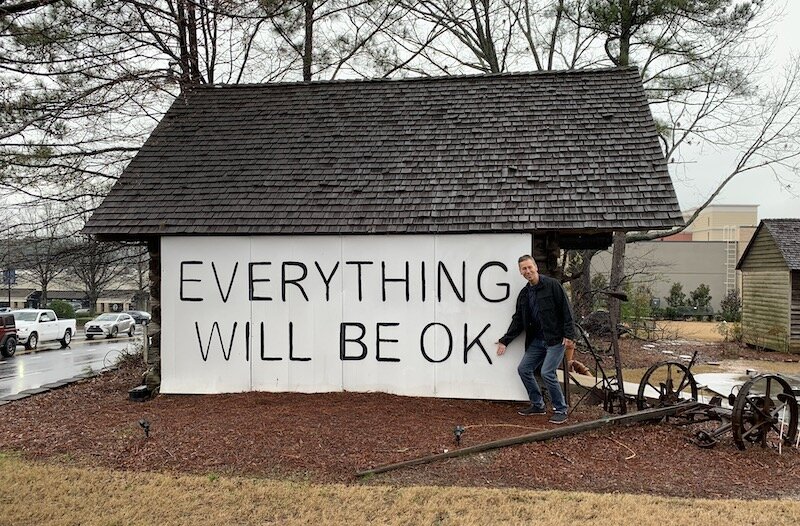In early March, I visited Dunwoody, Georgia. They showed me this lovely mural at the Spruill Center for the Arts. The mural had been done several years before by artist Jason Scott Kofke and was intended to be temporary but the community had fallen in love with that simple yet beautiful statement. In fact, the message had almost become the de facto city slogan and brand.
At the time of my visit, Covid-19 was making the news but still somehow seemed far away. Just a couple weeks later and that all changed. And when it changed, that mural became even more important to Dunwoody and many other communities as well. The pandemic revealed it to be “emotional infrastructure.”
In the early weeks of the pandemic, there was a a lot of fear and uncertainty. People began to share pictures of the mural on their social media platforms and the message started to spread. The CEO of the Arts Center, Alan Mothner and the artist partnered with a local sign maker and they offered small yard signs with that message printed on it. You ordered the sign online and someone from the Arts Center would install it in your yard. The money generated became a fund to support local artists impacted by the pandemic.
Extraordinary circumstances revealed the importance of a simple mural to the community of Dunwoody but it did not stop there. News crews from around the state picked up the story and shared it across the country. This is infrastructure - emotional infrastructure. Certainly I am not going to equate this with a hospital or a medical clinic, but this mural plays a part in the health and well being of the community. Care and feeding of our mental and emotional state is a critical part of what our cities do for us, yet it is often not obvious. And it is often not valued.
I believe one of the important outcomes of these extraordinary times will be that we look at our homes, our neighborhoods and our cities with a new set of eyes. We will remember what was important when we could not travel freely and partake of our places in the usual fashion. We will remember how a simple park became our sanctuary when we had to get out of the house. We will remember the moments of beauty, both natural and man-made, that eased our troubled minds. So when we return our attention to building and developing our places again, we will (hopefully) have new requirements and standards that inform those decisions.


